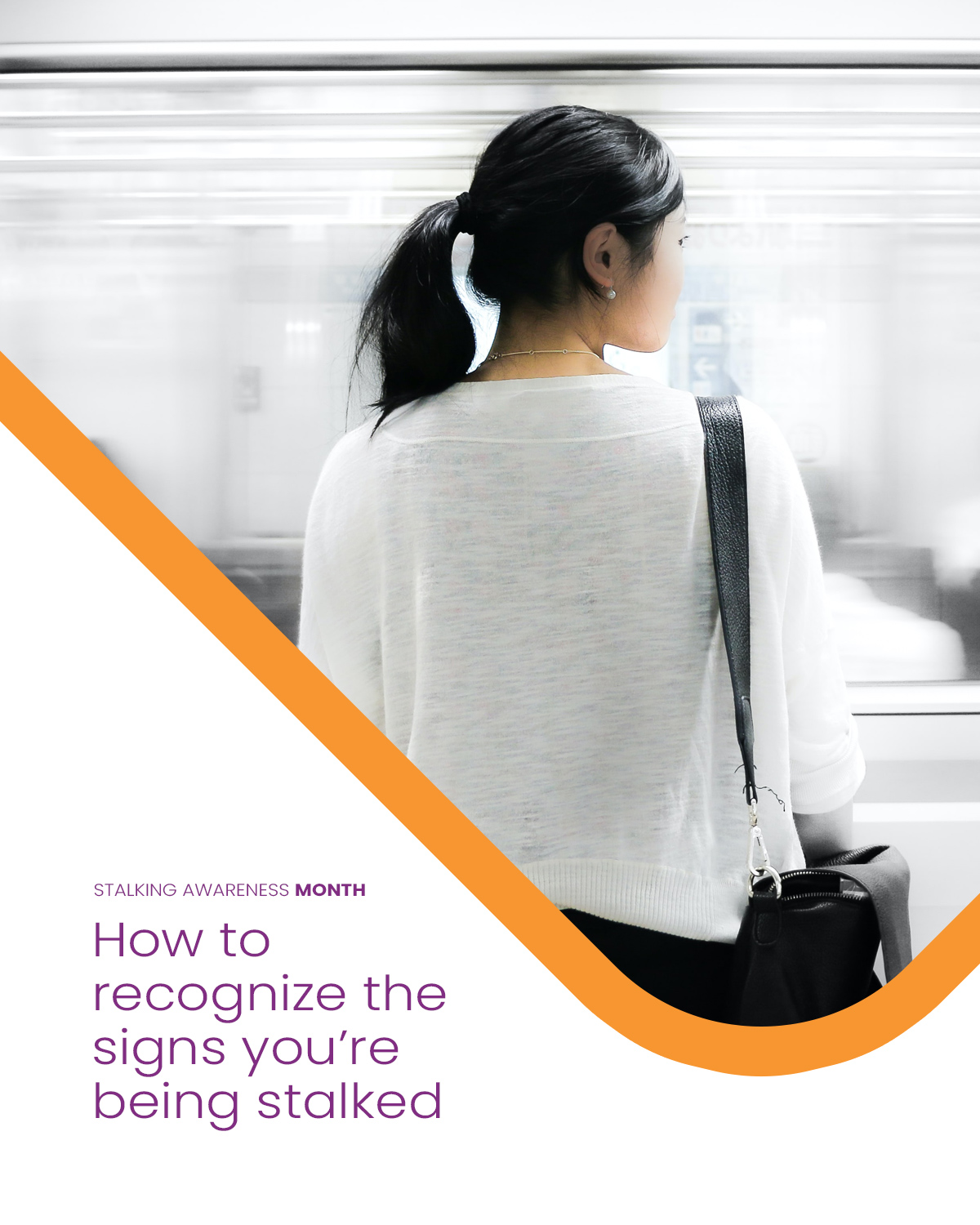January is Stalking Awareness Month and since it’s such a serious and often misunderstood crime, we want to take a moment to explain the many forms stalking can take, how to recognize the signs and what to do if you fear you or a loved one might be a victim.
WHAT CONSTITUTES STALKING
When you hear the word stalking, you probably envision some creepy guy lurking in the shadows peering through a woman’s window at night. After all, that’s how it’s portrayed in the movies and on TV. However, stalking doesn’t always take this obvious and extreme form.
According to the United States Department of Justice, stalking is defined as any pattern of repeated and unwanted attention, harassment or contact directed at a specific person that would cause a reasonable person to feel fear.
So while that guy peering through a person’s window at night definitely deserves stalker status, that’s not the only way a stalker might try to harass or intimidate their victim. Some common forms of stalking include:
- Repeatedly showing up at a person’s home, workplace, or other places they frequent.
- Using the internet, social media, or other electronic means to track, harass, or intimidate someone.
- Manipulating the victim’s emotions through mind games or threats.
- Repeatedly making unwanted sexual advances or comments.
It is important to note that stalking doesn’t just take place between strangers. It can occur between people who are or have been romantically involved, between friends or even coworkers.
RECOGNIZING THE SIGNS
It can be difficult to recognize that you are being stalked, especially if the stalker is someone you know and trust. However, there are a number of common signs to look out for:
- You repeatedly receive unwanted gifts or messages from the stalker, even after you’ve asked them to stop.
- The stalker keeps showing up “randomly” in the places you frequent.
- They constantly call, text, or email you.
- They use technology, such as GPS tracking or “sharing locations,” to monitor your activities.
- They gather information about you from public records or online searches.
- They exhibit obsessive or possessive behavior, like trying to control who you spend time with.
- If that doesn’t work, they may threaten you or your loved ones or damage your property.
WHAT CAN YOU DO?
If you believe that you or someone you love are being stalked, you need to take immediate action to protect yourself. Here are a few ways to do that:
- Tell someone you trust and seek their support.
- Document every incident, including the date, time, and any witness information.
- Change your daily routine and vary your routes to and from work or school.
- Use privacy settings on your social media accounts and be cautious about what information you share online.
- Tell your employer, school, or other relevant authorities about the issue and request additional security measures.
- Consider seeking a restraining order or other legal protection.
YOU DON’T HAVE TO FACE THIS ALONE
Remember, we are here to help. If you suspect you or a loved one are a victim of stalking, you can call our 24-hour toll-free support line at 877-854-3594. We have trained professionals here to help you.





